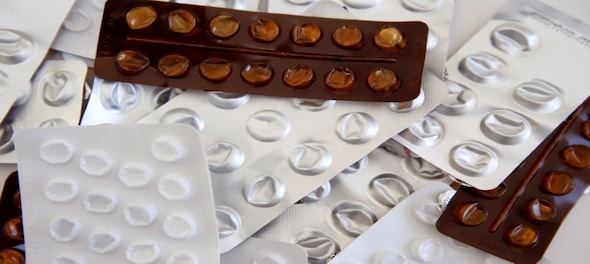
The Nifty Pharma index is the fifth worst performing sectoral index this year. Whilst it has recovered from its October lows, the index is still down over 11 percent versus the Nifty which is up almost 10 percent. However, one pharma stock stands out for its outperformance this year. IPCA Labs, the company with a market cap of Rs 14,500 crore, has shot up over 40 percent in 2019 and over 100 percent in the last two years.
IPCA is a rare case of outperformance; the stock has given returns despite facing USFDA compliance issues since the past five years. The company was issued an import alert on three of its key facilities in 2015-2016. It generated no sales in the US in FY19 and neither in the latest quarter gone by.
Growth in non-US markets
One of the reasons for the firm’s resilience has been its ability to focus on and grow in non-US markets. India, for example, is one of IPCA’s main markets, which contributes to 50 percent of total sales. The domestic formulation market grew 16 percent in FY19 and in Q2FY20, above estimates of 13-14 percent. One of the key contributors of domestic formulation was from the NSAID or non-steroid anti-inflammatory drugs or pain medications. The NSAID segment, which comprised 46 percent of IPCAs sales, grew 20 percent in FY19 and 22 percent in Q2FY20. One of the company’s key drugs in the NSAID segment is Zerodol, which makes up 80 percent of the pain segment revenues. Zerodal has grown 18 to 20 percent in the past decade according to Nomura with Q2 volumes strong at 8 to 10 percent. The other key drug fuelling domestic growth has been blood pressure medicine CTD. IPCA’s CTD brands have grown 29 percent CAGR with 17 percent market share. Both Zerodol and CTD, while strong growth drivers, come with a high concentration risk. The two drugs comprise 30 percent of IPCA’s domestic formulation sales.
The other piece of the pie is the export segment. The export market comprises 50 percent of IPCA’s sales. The segment comprises sales of finished drugs or formulations and sales of malaria drugs via tenders or the institutional malaria business. The key export markets for IPCA are Europe, Africa, Asia and CIS. Europe, which is around 30 percent of exports, saw sales jump over 70 percent sequentially to Rs 48 crore in Q2FY20, with a 24 percent growth in FY19. The UK business that faced distributor issues too seems to have gotten back on track recording growth of over 20 percent sequentially in Q2FY20.
Institutional malaria business
IPCA also seems to be rediscovering its mojo in the institutional malaria business. It was at one point a leader in the institutional malaria business, which comprises 24-25 percent of its sales. However, the segment faced a setback in 2016 when The Global Fund, the Geneva-based public partnership, decided to stop sourcing drugs from IPCA. This was in light of the USFDA issues faced by the company. The Global Fund has now resumed giving orders to IPCA and the company is also participating in tenders for injectable formulations. The institutional malaria sales recorded sales of Rs 61.5 crore in Q2FY20 versus Rs 27.3 crore in Q1FY20. For the year, however, the company reduced its guidance to sales of
Rs 215-220 crore.
Going forward, the street will watch out for growth in the API segment too. In the first half of FY20, API growth was strong at 38 percent YoY. Most of the growth of the API business is expected to be due to the production of blood pressure class of drugs – sartans and due to disruptions in the Chinese market. For sartans in particular, the company has ramped up its capacity for Valsartan by 5x. It is also seeing momentum in growth in other sartans such as Losartan. Growth guided by the company has been strong for the API business in the 2H at 20 percent YoY.
USFDA inspections
Lastly, one of the important triggers for the company will be the remediation of its US facilities and resumption of US sales. In August 2019, the USFDA re-inspected one of the facilities under import alert – the Piparia or Silvassa formulation unit. It was issued three observations, the outcome of the inspection is still not known. The other two facilities under import alert – Pithampur (formulations) and Ratlam (API) facilities are still to be inspected by the USFDA. The company has around 20 new drugs filed for the US, mostly from the Pithampur plant. Estimates are in a best case scenario of the USFDA lifting the import alert on all three plants, IPCA can resume US sales by FY22.
Check out our in-depth Market Coverage, Business News & get real-time Stock Market Updates on CNBC-TV18. Also, Watch our channels CNBC-TV18, CNBC Awaaz and CNBC Bajar Live on-the-go!


Delhi voters can avail free rides from booths to their homes on polling day
May 10, 2024 6:26 PM
Kolkata North: TMC fights 'TMC' in battle reflecting party's Old vs New debate
May 10, 2024 5:14 PM

